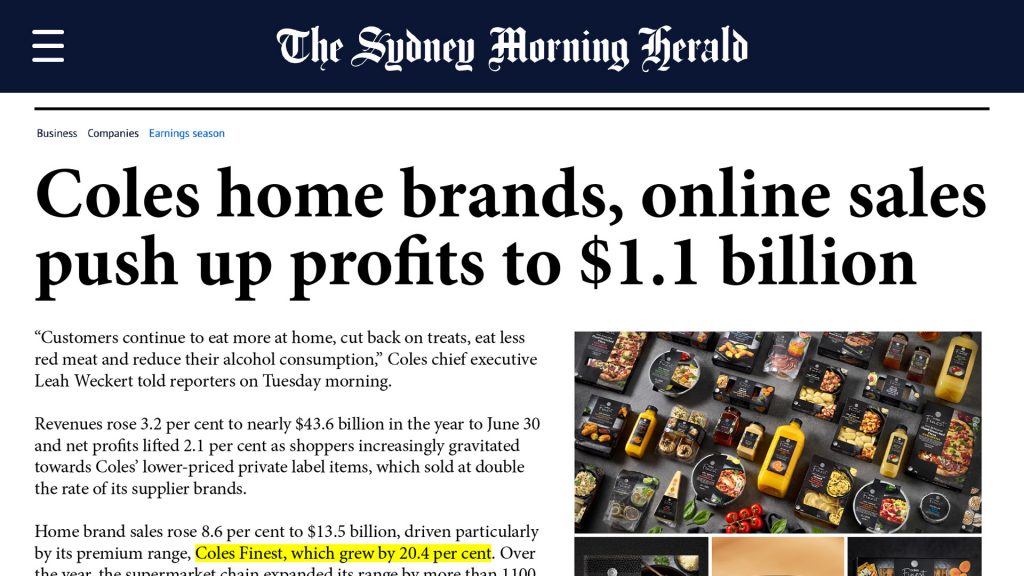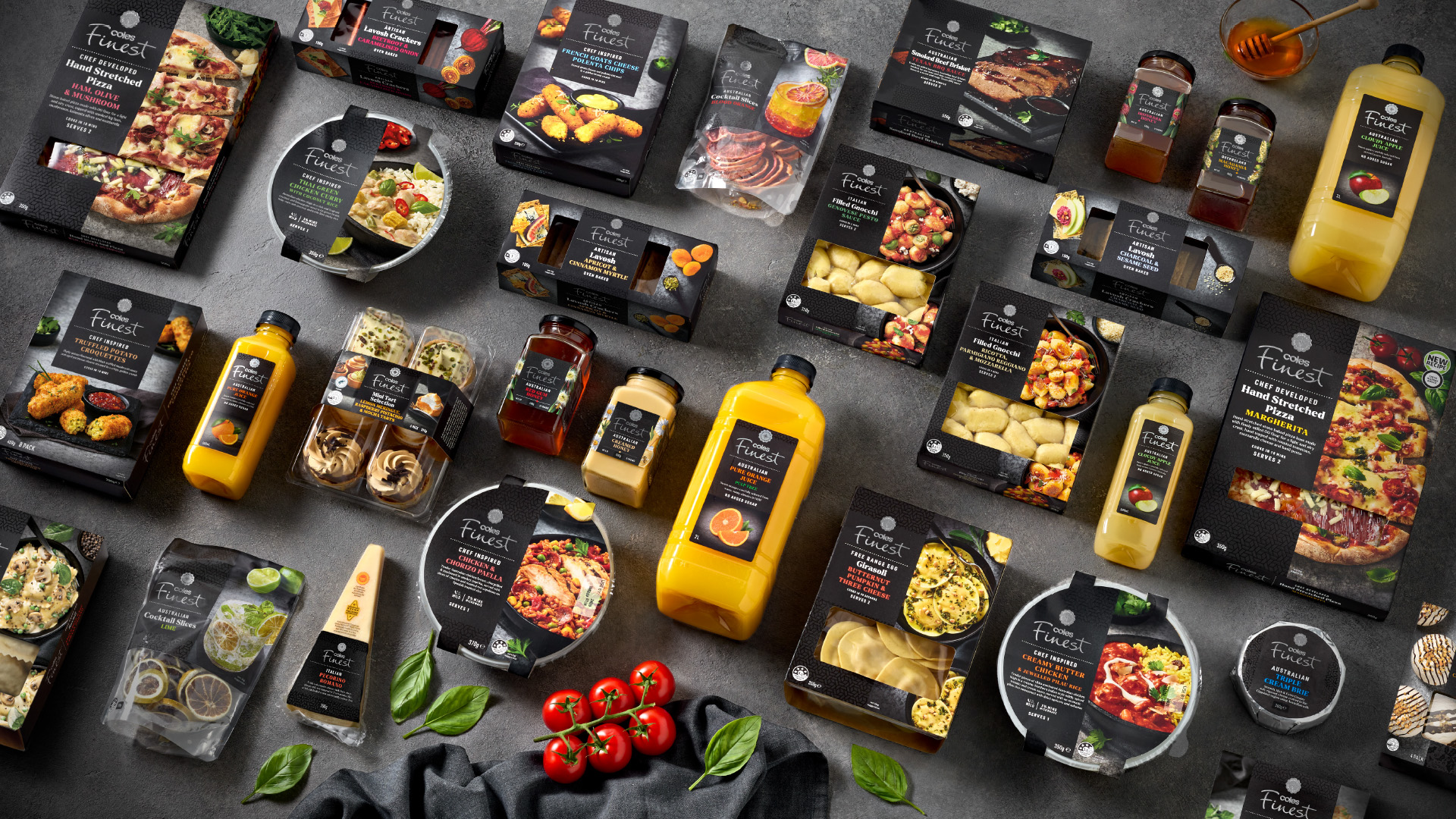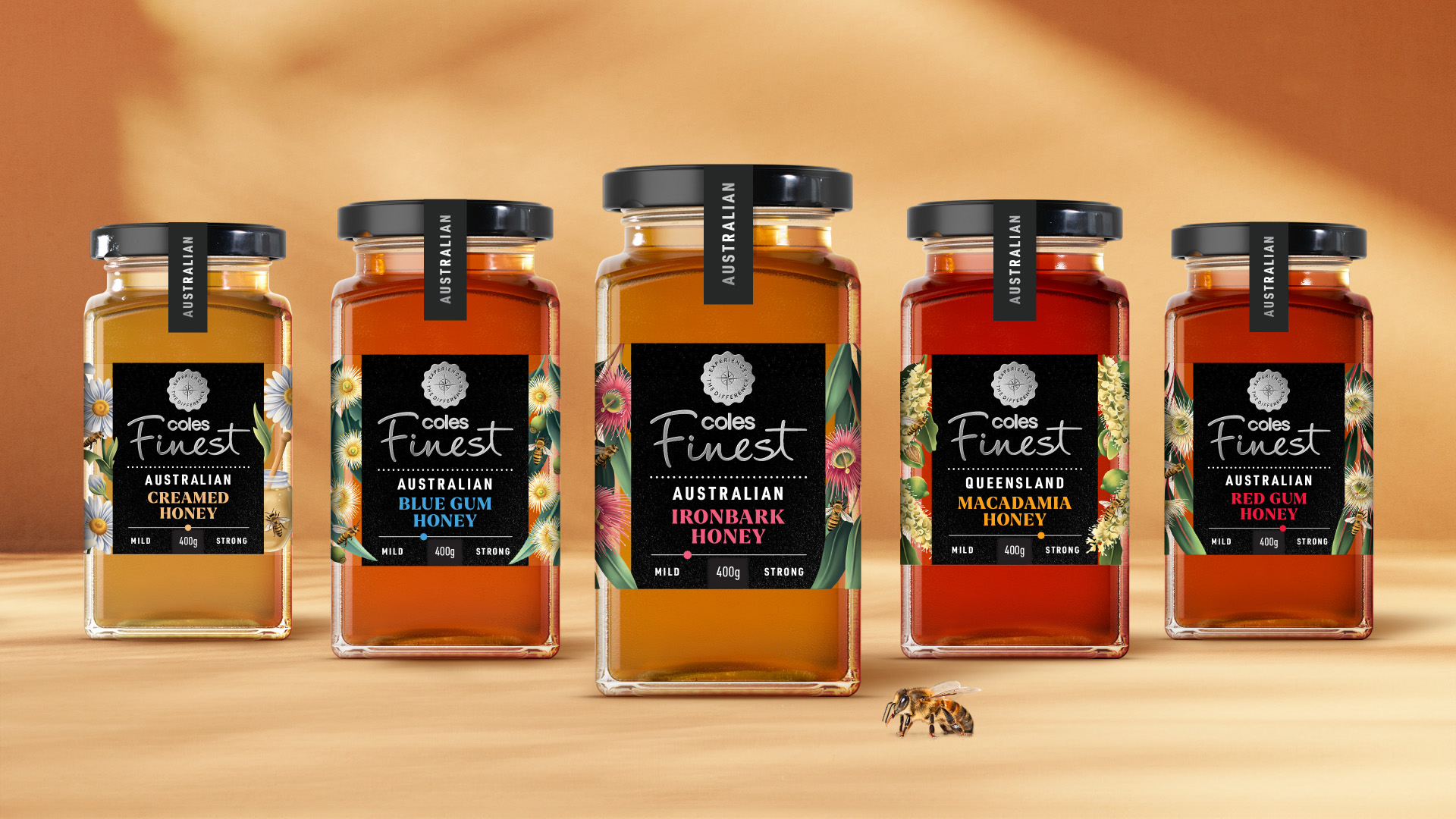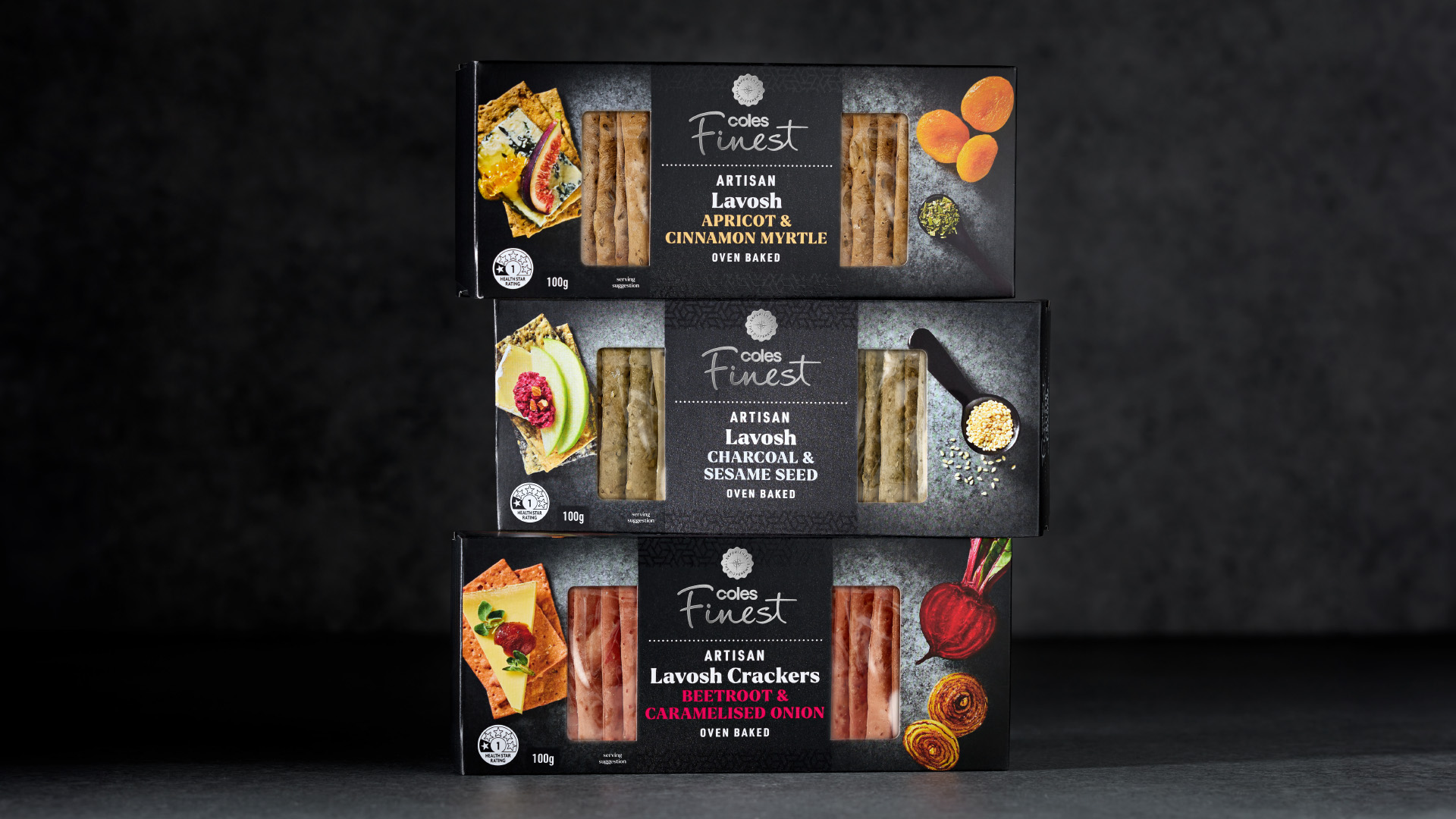

Coles home brands, online sales push up profits to $1.1 billion
Meat-free Mondays, a jump in online sales and an ever-expanding range of home brand products helped push Coles’ profits to $1.1 billion as Australians cut down on dining out in the cost-of-living crush.
“Customers continue to eat more at home, cut back on treats, eat less red meat and reduce their alcohol consumption,” Coles chief executive Leah Weckert told reporters on Tuesday morning.
Revenues rose 3.2 per cent to nearly $43.6 billion in the year to June 30 and net profits lifted 2.1 per cent as shoppers increasingly gravitated towards Coles’ lower-priced private label items, which sold at double the rate of its supplier brands.
Home brand sales rose 8.6 per cent to $13.5 billion, driven particularly by its premium range, Coles Finest, which grew by 20.4 per cent. Over the year, the supermarket chain expanded its range by more than 1100 Coles-label items.
“Do we think we’ve got a ceiling on this? If we do, we certainly haven’t seen it yet,” Weckert said. “So we will continue to invest and look to bring new value products into that range.”
Food sales at the company’s supermarkets rose 4.3 per cent to $39 billion, while liquor sales were largely flat at $3.7 billion.
In good news for shoppers, price growth in Coles’ supermarket aisles has started to cool down over the year, with inflation for products excluding tobacco slowing to 1.5 per cent in the six months through June from 2.9 per cent in the December half. The figure was 2.2 per cent for the year.
Meat and bread prices came down, as did prices for avocados and apples, but the cost of some fresh produce such as bananas and tomatoes has risen recently.
In that context, Weckert warned that the price of chocolate is set to ramp up. “There are some inflationary headwinds that are coming, and probably the most significant one that I would call out there is cocoa,” she said.
Australians are choosing to eat less meat as a way of cutting back on spending, something they’re also doing while dining out in pubs and hotels, observed Dan Murphy’s and BWS boss Steve Donohue on Monday.
“The rise of a sort of meat-free Monday is a bit of a phenomenon,” said Weckert.
More and more Australians buy their groceries online, with the supermarket seeing 30.1 per cent growth in grocery ecommerce sales during the year, and a 9.2 per cent growth in liquor sales.
The grocery boss said the alcoholic drinks market was “very challenging” as it posted flat sales growth of 0.5 per cent, and the company would focus on key trends to improve liquor sales.
“We’ve seen a bit of a shift back into beer, a shift out of areas like champagne into prosecco. Spirits is an area that has been declining, but RTDs [ready-to-drink cans] are growing really strongly because that is a more affordable per unit purchase.”
The supermarket operator said it has made inroads in addressing theft, improving its digital platforms, reducing costs by $238 million, and finishing the construction of warehouses.
To stop shoplifters, Coles is using a range of technologies including “skip scan” self-serve check-outs that detect if a shopper has put something in shopping bags without scanning it; smart gates that don’t open for suspected thieves; and “bottom of trolley” technology that asks a customer to scan heavier items first, which Weckert said would be rolled out to more stores in this year. The theft prevention measures saved Coles $80 million in the second half.
The company has declared a fully franked final dividend of 32¢ a share, to be paid on September 25. It already paid a first-half dividend of 36¢. Coles’ share price rose 1.7 per cent in afternoon trade as investors digested the figures. UBS analysts noted the profit figures came above expectations, but indicated liquor sales fell short of forecasts.


